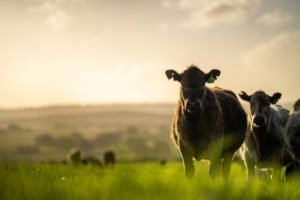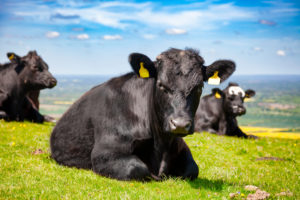Recovery and restructure finance gives breathing space to the next generation
 At UK Agricultural Finance, we are seeing increased demand for recovery and restructure finance. This is across various farming sectors but is particularly prevalent in smaller family farms and traditional hill farming operations.
At UK Agricultural Finance, we are seeing increased demand for recovery and restructure finance. This is across various farming sectors but is particularly prevalent in smaller family farms and traditional hill farming operations.
Increasing pressures on the farming industry and changes to income levels have meant that many farms are losing their next generation to off-farm employment. This, coupled with the ever-increasing average age of farmers, has led many family farms into financial and emotional struggles. The market conditions over the last two years combined with the impact of Covid has put additional pressure on many of these family farms.
What was the situation of the borrowers?
Louise, our BDM covering the North of England and Scotland, dealt with a case that perfectly highlights the conditions facing many multi-generational farms today.
The farm was held in a partnership between family members. Originally, this was between our borrower’s grandfather, father and uncle. When the grandfather passed away, the father had to buy the uncle out of the partnership. This created some financial pressure for the farm and the son, our borrower, was brought into the partnership as the next generation.
To help support the farm, the borrower lived in a cottage on site while his parents remained in the main farmhouse. There was a second tenanted cottage but once the borrower started his family, it was decided to knock the two cottage together to provide a suitably sized family home for the borrower and his wife and children. Additionally, the borrower had invested in a new cattle-shed to support his growing herd of pedigree Aberdeen Angus cattle.
However, the cost of these works along with the existing indebtedness of the farm was starting to cause strain. The borrower had been forced to seek additional employment off-farm to provide further income. While he was able to find a role with flexible hours that allowed him to continue his responsibilities on the farm while still generating extra income, this situation was unsustainable for the long term.
Why did the borrowers require recovery and restructure finance? 
The indebtedness was becoming a concern for their existing lender as well as the family, and it was agreed by all parties that it was unsustainable.
The decision was made to sell 220 acres of land in order to reduce the debt down to a manageable level. However, Covid delayed the sale and the current lender asked the family to look to refinance the debt elsewhere.
The borrower wanted to refinance their existing loan from their high street bank and, at the same time, take the opportunity to consolidate some other outstanding loans and credit arrangements with a series of other creditors. They also discussed and took advice from their land agent, GSC Grays.
How did the farm plan to restructure and move forward from this point?
With the sale of the 220 acres progressing, the borrower worked closely with their land agent to prepare a well-thought-out business plan and projections for the business moving forward. We were particularly impressed with the work presented by the land agent, and Louise and the rest of the UK Agricultural Finance team worked closely with all parties.
Following time working aboard, the borrower had returned to the family farm with a passion for pedigree Aberdeen Angus cattle. The borrower and his wife had started with just a few animals as a side project, but this developed into a strong herd and now includes pedigree stock bulls, pedigree breeding heifers and fat cattle. This herd would provide a viable income following the required restructuring.
The land that remained would continue to support the 100 head of pedigree Aberdeen Angus suckler cows, and we felt the business had a viable future with the smaller acreage. The borrower would also continue to subsidise his income with off-farm work to reduce his drawings from the farm business.
The borrower approached us requiring a bridge product, and it was agreed that the 18-month window of interest roll up would allow sufficient time for the family to restructure their business post completion of the loan.
The family will continue to liaise with GSC Grays for business advice, implement their business plan and successfully restructure their finances upon which they will look to refinance their debt back to the high street.
How did UK Agricultural Finance support this restructuring process?
 At the point when Louise visited the borrowers, the distressed financial situation was at risk of taking a toll on the family, and we understood the need to act as quickly and as efficiently as possible. Whilst we were able to keep the existing lender updated with the progress of the application, the other creditors were starting to add increased pressure for repayment.
At the point when Louise visited the borrowers, the distressed financial situation was at risk of taking a toll on the family, and we understood the need to act as quickly and as efficiently as possible. Whilst we were able to keep the existing lender updated with the progress of the application, the other creditors were starting to add increased pressure for repayment.
The borrower spoke openly of the strain, responsibility and pressure he felt he was under at the time. However, he now looks to the future, which is so very important to him in order to leave a legacy to his three children.
The site visit was a turning point for the borrowers, and they commented that they felt more at ease having met with Louise and how she provided an extra layer of support to that which they were receiving from their land agent.
The borrower has said that following our loan, he has started to look positively to the future and is prepared to look at any opportunities to maximise on the income generated by the farm. Their ideas have included the development of some of the smaller outbuildings into residential properties, and they have already gone to the extent of seeking advice regarding planning permissions, etc.
